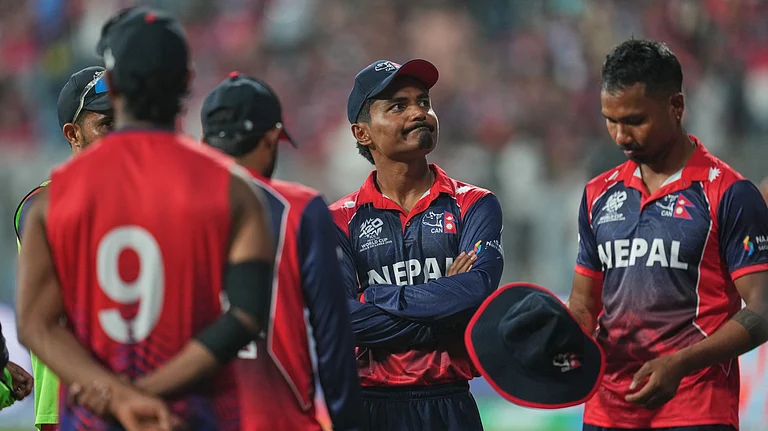I wonder what must be going through the mind of Kanika Duggal, having heard the Union Minister of State for Health, Bharati Pravin Pawar stoutly deny any oxygen deaths in any state or union territory of this country during the second wave of the Covid Pandemic.
Kanika, whom we had featured in one of our recent Outlook covers, had recounted in harrowing details how her 54-year-old mother Raman – a resident of Delhi’s Vivek Vihar – had died a slow and painful death for lack of oxygen. Raman had tested positive for Covid some days after she had got her first jab. Yet, her condition worsened, and she found herself in a hospital that intermittently ran out of oxygen. Though Kanika and her sisters were also Covid positive, they ran around to get oxygen cylinders until one day when their luck ran out. Raman died.
Despite being exceptionally tragic, Kanika’s story is one that was rather common during the worst days of the Covid pandemic that peaked during April-May. We have all heard such heartrending stories, even if we were lucky not to have experienced it ourselves. The shortage of oxygen during those months was acute and real. As Covid swept, family after the family were forced to frantically search for oxygen that suddenly seemed nowhere in sight. We begged, borrowed and possibly stole cylinders in our desperate bid to keep our near and dear ones breathing. Many survived, but scores died. The memories of those nightmarish days are indelibly etched in our minds as part of what has been our collective but frightening reality.
But when the junior health minister rose to defend the government’s version of the worst crisis in contemporary India in the upper house of Parliament on Tuesday, our shared experiences counted for little. She defended her government, insisting that none of the states or union territories had reported any deaths due to lack of oxygen. From the government’s point of view, she did a creditable job, seizing on the crisis to score some political points. She reeled off statistics after statistics to stress how the Central government had come to the rescue of the beleaguered states to get the better of the oxygen shortage. So much more oxygen was produced, so much more oxygen was transported…the minister held forth as members of the house listened.
We heard her too, albeit incredulously. The gap between what she claimed and what we went through was starkly different. However clinical her defence could have been, it seemed devoid of compassion. It also possibly lacked contrition, and in no way did her statement help us in finding any kind of closure to the umpteen tragedies that befell us as a community during those dark and dreadful months.
If at all, what the minister said further stoked our anxiety. No matter what the government says, the oxygen crisis claimed lives. Denying it means we have not learnt lessons and remain far from being chastised. It also means no one, in particular, was responsible and will ever be held accountable, though only accountability can ensure a similar crisis never visits us.
Whatever the political reasons, the denial does not cut much ice. But why did the government choose to chart such a course? It cannot be the case that it is so naïve that it did not know what clearly was happening under its nose. The current government cannot also be believed to be confined in a cocoon that has cut itself out totally from the harsh realities. This government is made of people who are too smart to be held prisoners by sycophants who tell them only what they desire to hear.
A more convincing explanation behind the ‘unbelievable’ denial could be the government’s belief in the correctness of projecting its own strength. It has always marketed itself as a muscular entity, unbowed by both external and internal threats. Its critics say the strength projected is disproportionate, and often achieved through a mix of bluff and bluster. But strong, it must be always seen to be, in the face of any challenge. Covid included.
That being the larger objective, the minister’s denial serves it immediate goal. Though it is no consolation for the likes of Kanika Duggal. The poor girl ought to be confused now. She saw her mother slowly suffocate to death. But following the government denial, she must ponder afresh how did her mother die such an unnecessary death.
We must also ponder what the Rajya Sabha member Manoj Jha poignantly stated in the Parliament recently. We deserve dignity not just in life, but in death as well, the MP from Bihar said while drawing attention to the oxygen crisis. Having died undignified deaths, the likes of Kanika’s mother are possibly being also denied the respect that is due because of the government denial.

























